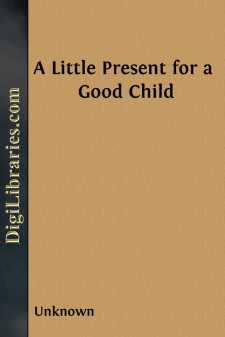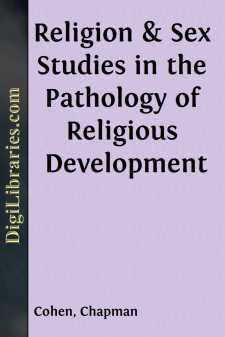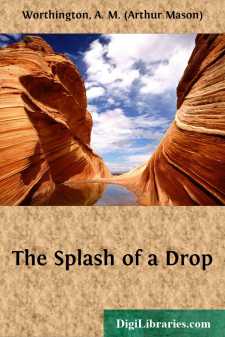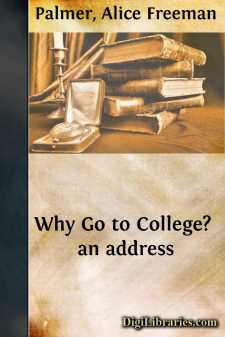Non-Classifiable
- Non-Classifiable 1768
Non-Classifiable Books
Sort by:
by:
Charles Hopkins
INTRODUCTION In the spring of 1698 the rumblings against the excesses of the English stage broke into a roar with the publication of Jeremy Collier's Short View of the Immorality and Profaneness of the English Stage. A wild joyousness marked Collier's attack, and at times it seemed as though the zeal of the Lord had eaten him up. But he was no enthusiast without plan or reason. A man of some...
more...
by:
Unknown
LITTLE PRESENT. The Squirrel leaps from tree to tree. The Hive doth hold the honey-bee. The pretty Butterfly is seen, When little girls trip o’er the green. The Owl until the evening sleeps. The Serpent on his belly creeps. The Lion roars, the woods resound. The raging Bull tears up the ground. The Raven for his food doth cry. The Eagle soars exceeding high. Whilst the Plowman drives his Plow. Betty...
more...
by:
Chapman Cohen
PREFACE In spite of all that has been done in the way of applying scientific principles to religious ideas, there is much that yet remains to be accomplished. Generally speaking science has only dealt with the subject of religion in its more normal and more regularised forms. The last half-century has produced many elaborate and fruitful studies of the origin of religious ideas, while comparative...
more...
by:
Montagu Browne
PRACTICAL TAXIDERMY. CHAPTER I.THE RISE AND PROGRESS of TAXIDERMY. TAXIDERMY, which is derived from two Greek words, a literal translation of which would signify the "arrangement of skins," appears to have been practised in a limited degree ages ago, for may we not say without doubt that the first taxidermists were the ancient Egyptians, who, despite the fact that they seldom or never appear to...
more...
Mr Harwood and Alethea in Sherwood Forest, and Jack Deane’s First Adventure. Romantic Sherwood! Its pristine glories since the days when bold Robin Hood and his merrie men held sway within its borders, and levied taxes from the passers-by, had sadly dwindled even in the year 1696, when our history commences. The woodman’s axe had been busy and the plough had gone over the land, and mansions and...
more...
I "As Surrey hills to mountains grewIn White of Selborne's loving view" Really there are no hills in Hingham, to speak of, except Bradley Hill and Peartree Hill and Turkey Hill, and Otis and Planter's and Prospect Hills, Hingham being more noted for its harbor and plains. Everybody has heard of Hingham smelts. Mullein Hill is in Hingham, too, but Mullein Hill is only a wrinkle on the...
more...
by:
Plutarch
§ i. Come let us consider what one might say on the education of free children, and by what training they would become good citizens. § ii. It is perhaps best to begin with birth: I would therefore warn those who desire to be fathers of notable sons, not to form connections with any kind of women, such as courtesans or mistresses: for those who either on the father or mother's side are ill-born...
more...
THE SPLASH OF A DROP The splash of a drop is a transaction which is accomplished in the twinkling of an eye, and it may seem to some that a man who proposes to discourse on the matter for an hour must have lost all sense of proportion. If that opinion exists, I hope this evening to be able to remove it, and to convince you that we have to deal with an exquisitely regulated phenomenon, and one which...
more...
Borrow had at last found work that was thoroughly congenial to him. It was not in his nature to exist outside his occupations, and his whole personality became bound up in the mission upon which he was engaged. Not content with preparing the way for printing the New Testament in Manchu, he set himself the problem of how it was to be distributed when printed. He foresaw serious obstacles to its...
more...
To a largely increasing number of young girls college doors are opening every year. Every year adds to the number of men who feel as a friend of mine, a successful lawyer in a great city, felt when in talking of the future of his four little children he said, "For the two boys it is not so serious, but I lie down at night afraid to die and leave my daughters only a bank account." Year by year,...
more...











